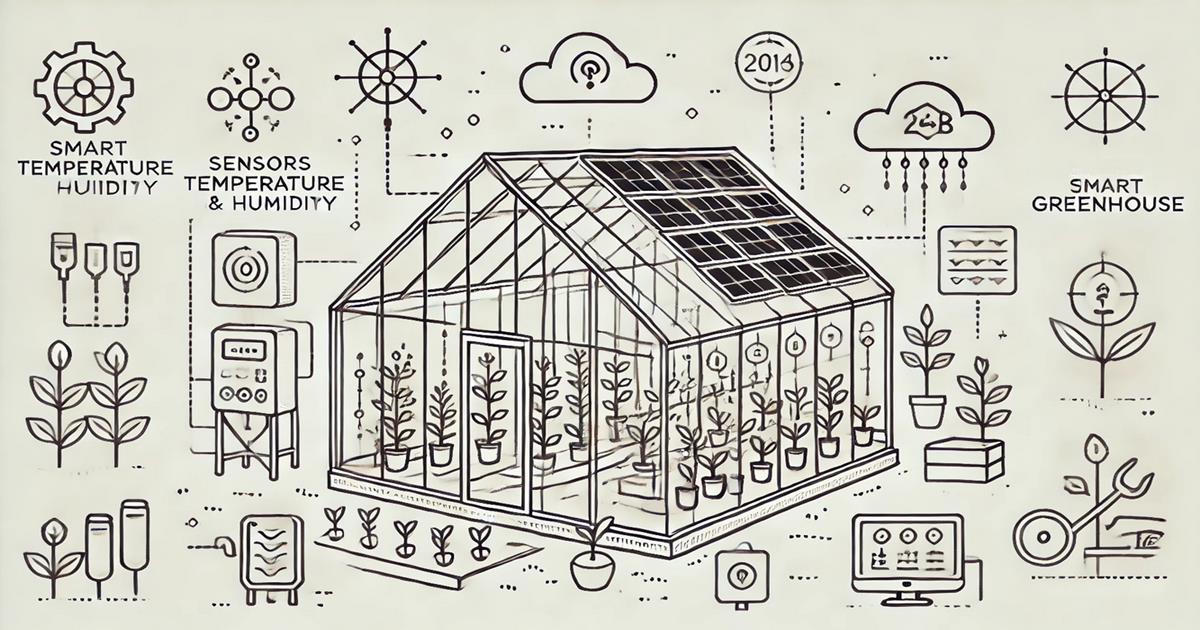Future of Smart Greenhouses: Automation, IoT, and AI Applications
A special issue of Applied Sciences (ISSN 2076-3417). This special issue belongs to the section "Agricultural Science and Technology".
Deadline for manuscript submissions: 20 August 2025 | Viewed by 46

Special Issue Editors
Interests: advanced sensing technology; agricultural intelligent equipment technology; smart agriculture
Interests: water resources management; irrigation; energy efficiency; smart agriculture; agriculture automation and control; computers and electronics in agriculture
Special Issues, Collections and Topics in MDPI journals
Special Issue Information
Dear Colleagues,
Smart greenhouses are revolutionizing agriculture by integrating advanced automation, IoT technologies, and AI-driven solutions. They enable year-round crop and vegetable cultivation by precisely regulating key factors such as temperature, humidity (both air and soil), and light intensity, regardless of the season or geographic location. These innovations promote efficient resource usage, precise environmental control, and higher crop yields. Addressing critical global challenges like food security, climate change, and sustainable development, this interdisciplinary field connects agriculture and technology, fostering remarkable opportunities for progress.
We are delighted to invite you to contribute to this Special Issue entitled "Future of Smart Greenhouses: Automation, IoT, and AI Applications". This Special Issue aims to highlight pioneering research, technological advancements, and comprehensive reviews that tackle the key challenges and explore new possibilities in smart greenhouse systems.
In this Special Issue, original research articles and reviews are welcome. Research areas may include (but are not limited to) the following:
- Development and application of IoT systems for greenhouse optimization.
- AI-driven techniques for precision agriculture and automation in greenhouses.
- Advanced sensor technologies for monitoring and enhancing environmental conditions.
- Integration of renewable energy and sustainable practices in greenhouse management.
We look forward to receiving your contributions.
Dr. Fanjia Meng
Prof. Dr. José Miguel Molina Martínez
Guest Editors
Manuscript Submission Information
Manuscripts should be submitted online at www.mdpi.com by registering and logging in to this website. Once you are registered, click here to go to the submission form. Manuscripts can be submitted until the deadline. All submissions that pass pre-check are peer-reviewed. Accepted papers will be published continuously in the journal (as soon as accepted) and will be listed together on the special issue website. Research articles, review articles as well as short communications are invited. For planned papers, a title and short abstract (about 100 words) can be sent to the Editorial Office for announcement on this website.
Submitted manuscripts should not have been published previously, nor be under consideration for publication elsewhere (except conference proceedings papers). All manuscripts are thoroughly refereed through a single-blind peer-review process. A guide for authors and other relevant information for submission of manuscripts is available on the Instructions for Authors page. Applied Sciences is an international peer-reviewed open access semimonthly journal published by MDPI.
Please visit the Instructions for Authors page before submitting a manuscript. The Article Processing Charge (APC) for publication in this open access journal is 2400 CHF (Swiss Francs). Submitted papers should be well formatted and use good English. Authors may use MDPI's English editing service prior to publication or during author revisions.
Keywords
- smart greenhouses
- automation
- internet of things
- artificial intelligence
- precision agriculture
Benefits of Publishing in a Special Issue
- Ease of navigation: Grouping papers by topic helps scholars navigate broad scope journals more efficiently.
- Greater discoverability: Special Issues support the reach and impact of scientific research. Articles in Special Issues are more discoverable and cited more frequently.
- Expansion of research network: Special Issues facilitate connections among authors, fostering scientific collaborations.
- External promotion: Articles in Special Issues are often promoted through the journal's social media, increasing their visibility.
- e-Book format: Special Issues with more than 10 articles can be published as dedicated e-books, ensuring wide and rapid dissemination.
Further information on MDPI's Special Issue polices can be found here.






